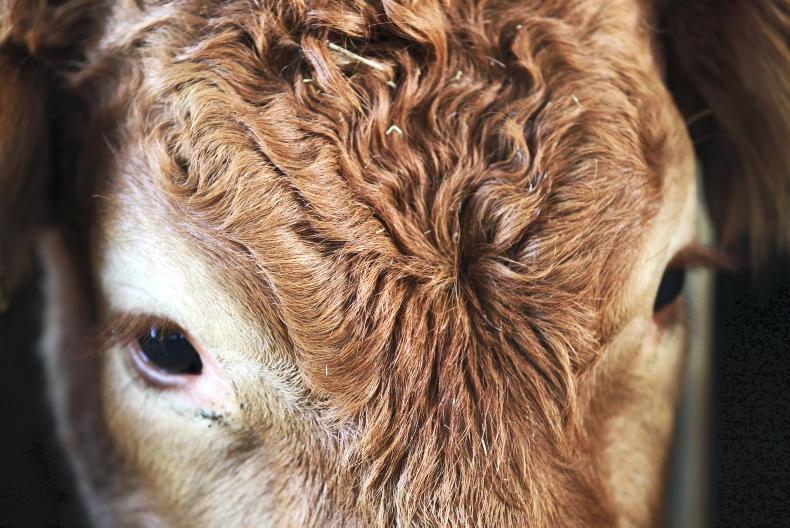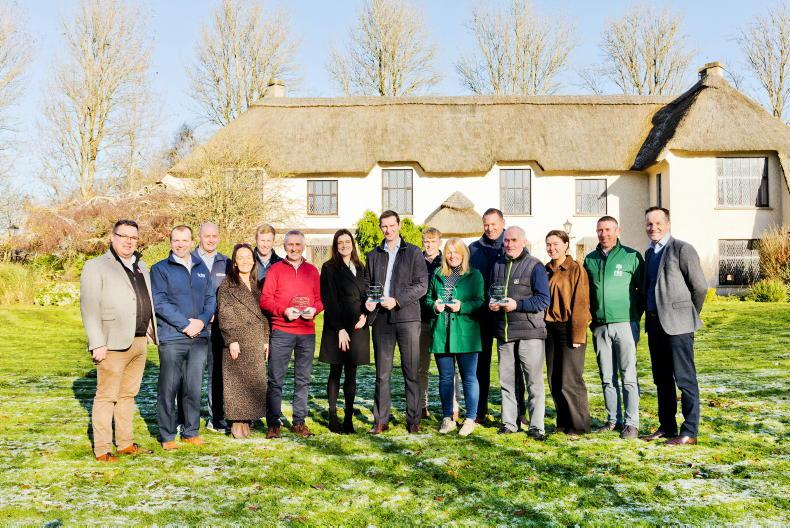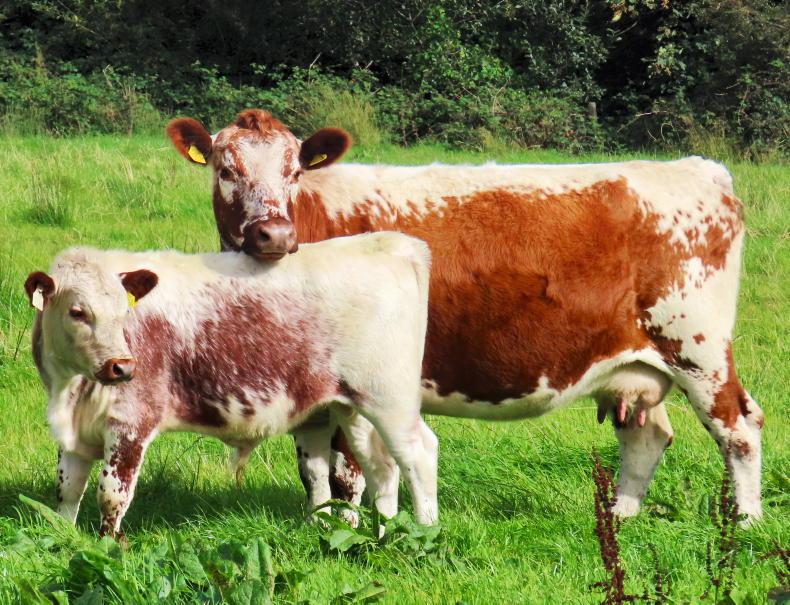A solution has been found to the stock bull issue in the Suckler Carbon Efficiency Programme (SCEP).
Farmers with pedigree bulls who have been locked out of the scheme as a result of the new beef indices will now be eligible for the scheme.
Up until now, some stock bulls on farms were deemed ineligible for the scheme as their €uro-Star ratings had changed in the November evaluation run when the new indices were implemented.
As per the terms and conditions of SCEP, calves in the scheme must be sired by a four- or five-star bull.
The new beef indices had downgraded the star ratings for some bulls, deeming them and their progeny to be ineligible for the scheme.
Changes
Under the new arrangements, bulls genotyped as four- or five-star on the September 2023 evaluation which are no longer four- or five-star following the index changes on 28 November 2023 will be considered SCEP-eligible in the context of action one (eligible bull) in SCEP.
This action requires that at least 80% of the calves are sired by a four- or five-star bull in years one or two of the programme, increasing to 85% in years three and four and then ultimately 90% by the end of the programme.
In addition, females genotyped four- or five-star on the September 2023 evaluation and which subsequently fell on the 28 November 2023 evaluation will be considered SCEP-eligible under action two, female replacement strategy.
This requires 65% of a farmer’s yearly reference number to be genotyped four- or five-star females on the replacement index on 31 October 2025, rising to 75% on 31 October 2027.
Genetic merit
Minister for Agriculture Charlie McConalogue said that the work carried out by farmers to improve the genetic merit of the national herd has made the country's suckler herd world-leading.
"I remain fully committed to supporting suckler farmers and improving the profitability and sustainability of their herds through better breeding.
"I understand that recent index changes approved by the ICBF board, which includes all the major stakeholders, have caused concern among some farmers. I have listened carefully to the feedback from stakeholders. I am satisfied that the flexibility I have announced today addresses concerns about compliance with SCEP, without undermining the objectives of the scheme," he said.
Anger
There had been no communication from the ICBF or the Department of Agriculture on the stock bull issue with farmers since 22 February, when the last beef stakeholder meeting took place.
As reported in this week’s Irish Farmers Journal, Irish Charolais Cattle Society secretary Nevin McKieran said he was absolutely livid at the way pedigree breeders were being treated and said that the ICBF had lost all respect for them.
Read more
What SCEP changes mean for your suckler herd
Row over ICBF indices escalates
A solution has been found to the stock bull issue in the Suckler Carbon Efficiency Programme (SCEP).
Farmers with pedigree bulls who have been locked out of the scheme as a result of the new beef indices will now be eligible for the scheme.
Up until now, some stock bulls on farms were deemed ineligible for the scheme as their €uro-Star ratings had changed in the November evaluation run when the new indices were implemented.
As per the terms and conditions of SCEP, calves in the scheme must be sired by a four- or five-star bull.
The new beef indices had downgraded the star ratings for some bulls, deeming them and their progeny to be ineligible for the scheme.
Changes
Under the new arrangements, bulls genotyped as four- or five-star on the September 2023 evaluation which are no longer four- or five-star following the index changes on 28 November 2023 will be considered SCEP-eligible in the context of action one (eligible bull) in SCEP.
This action requires that at least 80% of the calves are sired by a four- or five-star bull in years one or two of the programme, increasing to 85% in years three and four and then ultimately 90% by the end of the programme.
In addition, females genotyped four- or five-star on the September 2023 evaluation and which subsequently fell on the 28 November 2023 evaluation will be considered SCEP-eligible under action two, female replacement strategy.
This requires 65% of a farmer’s yearly reference number to be genotyped four- or five-star females on the replacement index on 31 October 2025, rising to 75% on 31 October 2027.
Genetic merit
Minister for Agriculture Charlie McConalogue said that the work carried out by farmers to improve the genetic merit of the national herd has made the country's suckler herd world-leading.
"I remain fully committed to supporting suckler farmers and improving the profitability and sustainability of their herds through better breeding.
"I understand that recent index changes approved by the ICBF board, which includes all the major stakeholders, have caused concern among some farmers. I have listened carefully to the feedback from stakeholders. I am satisfied that the flexibility I have announced today addresses concerns about compliance with SCEP, without undermining the objectives of the scheme," he said.
Anger
There had been no communication from the ICBF or the Department of Agriculture on the stock bull issue with farmers since 22 February, when the last beef stakeholder meeting took place.
As reported in this week’s Irish Farmers Journal, Irish Charolais Cattle Society secretary Nevin McKieran said he was absolutely livid at the way pedigree breeders were being treated and said that the ICBF had lost all respect for them.
Read more
What SCEP changes mean for your suckler herd
Row over ICBF indices escalates









SHARING OPTIONS